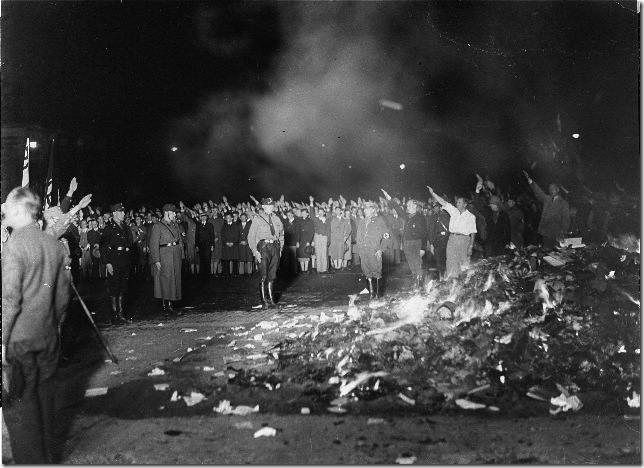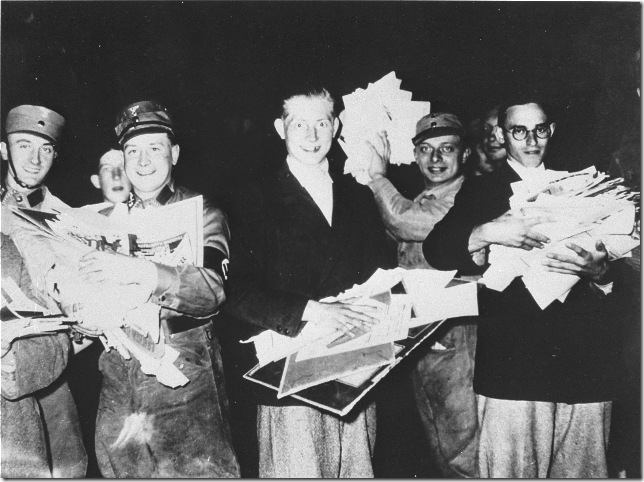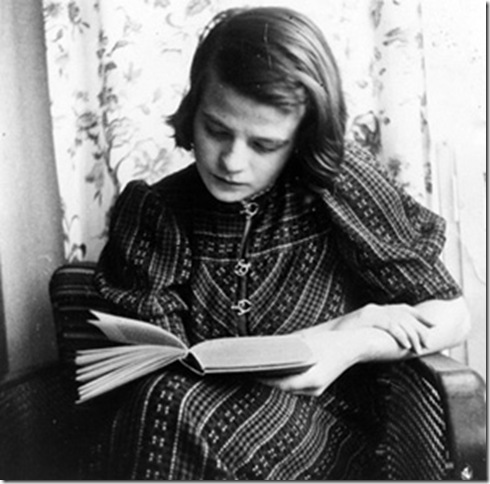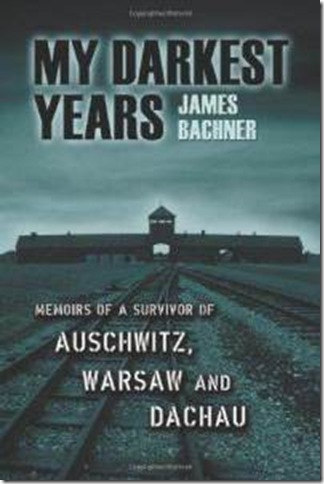By Tara Farquhar
James Bachner can attest to the destructive and redemptive power of books.
Born and raised in Berlin, Bachner remembers the book burnings in the German capital in May 1933 vividly.
“I was only 11 years old at the time, but I was very aware of what was going on,” he said. “Even though I didn’t go down there to see the book burning at the time, we were only about a mile or a mile-and-a-half from the actual scene. We listened to it on the radio, and that was bad enough.
“I did see the site a couple of days later. You could see the burned area … which was, incidentally, across from Humboldt University. That is where they had, essentially, just dragged out all the books,” said Bachner, now 90.
Among those that remained, if they contained Jewish or any social content and were found in your library, “you were shipped off to the concentration camp,” he said.
“And they burned Einstein’s and Freud’s books. That speaks for itself, doesn’t it?”
Bachner spoke Wednesday night in the first event of a new exhibit at the Mandel Public Library in West Palm Beach. Banned and Burned: Literary Censorship and the Loss of Freedom, which will be at the Mandel through Jan. 6, incorporates a traveling exhibition from the U.S. Holocaust Memorial Museum in Washington, D.C., called Fighting the Fires of Hate: America and the Nazi Book Burnings.
The exhibit will address issues arising from the book burnings through documents, photographs, film, video and newsreel coverage. The burnings became a key weapon in the U.S. fight against Nazism, according to exhibit organizers; in 1943, the slogan “Books Are Weapons in the War of Ideas” was used in “countless media promotions,” a prepared statement said.
The exhibit also examines the years after the war, showing the burning’s influence on American popular culture, including episodes of television programs including The Waltons and M*A*S*H, and incidents such as public burnings of the Harry Potter books by evangelical Christian groups.
The opening reception for the exhibit is Wednesday, Nov. 14, beginning at 5:30 p.m. Speakers will be Sara Bloomfield, executive director of the U.S. Holocaust Memorial Museum, and Ann Millin, a museum historian. Other events include a talk Nov. 19 by prominent New York defense attorney Barry Slotnick, whose address is titled “Does the First Amendment Really Protect Freedom from Censorship and Freedom of the Press?” Slotnick’s talk begins at 5:30 p.m., and a reservation is required (call 561-868-7715).
On Nov. 28 and Dec. 9, there will be discussions of four banned books: Fitzgerald’s The Great Gatsby, Hemingway’s A Farewell to Arms, J.K. Rowling’s Harry Potter series, and the trilogy of Hunger Games novels by Suzanne Collins. Facilitators will be on hand to get the discussion going; the Nov. 28 session is scheduled for noon to 1:30, and the Dec. 9 session runs from 1:30 p.m. to 3 p.m.
The substantial list of associated events also include films such as Sophie Scholl: The Final Days, about the White Rose resistance movement leader (Dec. 3), and Persepolis, the animated story of an Iranian girl whose views are suppressed during that country’s Islamic Revolution (Dec. 19).
Cantor Emil Levy and Mark Cuttler will present a program of Jewish music that helped Holocaust victims retain hope in the concentration camps (Dec. 2), and on Dec. 14, a jazz quartet featuring Joe Scott and Joe Mal will explore musical styles that were banned during the Nazi era.
Palm Beach Dramaworks will present My Books, Banned and Burned, a show about writers whose books were put to the Nazi torch (Dec. 5, 10, and Jan. 2), and students at the Dreyfoos School of the Arts will mount a performance art piece called Burning (Nov. 17).
For a complete list of the events, visit www.wpblibraryfound.org or call (561) 868-7715.
“We are so incredibly excited about all these events,” said Lyn Harris, event chairwoman of the exhibition hosted by The West Palm Beach Library Foundation. “We are the only venue for this exhibit in South Florida, and one of the things we tried to do from the beginning was to reach the largest audience possible ― all ages, all religions, and all interests.”
One of the most interesting aspects of having such an exhibit, Harris said, has been learning about the history of it. “The more you start to read about what happened with the Nazis and the students who burned the books, the more you realize: We don’t want this kind of thing to happen again anymore.”
James Bachner would agree. During his retirement, he decided to write his own book about his war experiences for his children and grandchildren.
“My interest,” he said, “was not to be this supernatural success. I wanted to be read and understood.” After writing My Darkest Years: Memoirs of a Survivor of Auschwitz, Warsaw, and Dachau, he told his neighbor that he was just going to “take it to Kinko’s and print 20 copies.” His neighbor suggested that he contact a publishing company instead. Two weeks later, he had a book contract.
He also gained a particularly important fan.
“Once, one grandson who lived in California called me at 7 a.m. my time. I just thought, ‘Oh my God, what’s happening?’ I was concerned. But my grandson on the other line said, ‘I started reading your book last night. I couldn’t put it down, and I just finished it.’
“So, a year later, he graduated high school and got into Princeton. As grandparents, we went to visit him and ended up going to the library there. He said he had to show me something. He punched a few numbers, and there was my book. I was absolutely shocked,” he said.
“The librarian overheard us talking and then asked, ‘Would you like to know how many universities carry your books?’ She came back with this big stack of papers,” he said. “There were 110 libraries in the States, plus others in Germany, Israel, and South Africa. I was very proud of what I did.”
Bachner hopes readers of his book and visitors to the exhibit will ask themselves some important questions.
“Did mankind learn from what has happened? Are we going to have more problems like this along the line? I was hoping that once this happened … that there will be much more attention being paid. People would know the need to be tolerant and to understand.
“But I’m afraid with what I see and what is going on that this may not happen,” he said. “And these problems will be left to my grandchildren.”
The Mandel Public Library, 411 Clematis St., West Palm Beach, is open from 9:30 a.m. to 8:30 p.m. Monday through Thursday, 9:30 a.m. to 5 p.m. Friday and Saturday, and 1 p.m. to 5 p.m. Sunday. Call 561-868-7700 or visit wpbpl.com.



